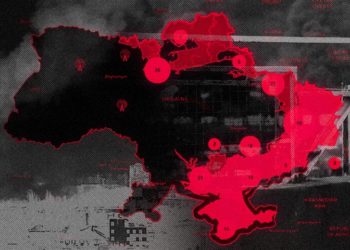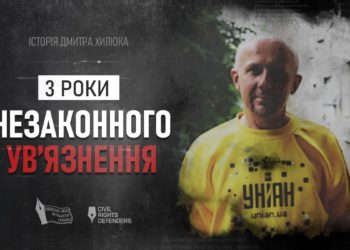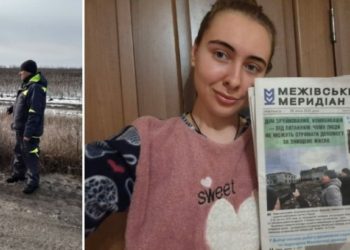The events of recent weeks, related to the conduct of military operations by the Ukrainian military in the territory of the aggressor state and the acquisition of control over certain territories of the Kursk Oblast, pose new challenges to the Ukrainian media community. After the first reports of domestic and foreign media journalists from Sudzha and its surroundings, there is a need to clarify the rules for covering the events taking place there.
Over the past two and a half years, the Commission on Journalism Ethics (CJE) has already issued a number of recommendations, some of which are applicable in new circumstances and which we will mention in more detail below. However, they are not enough for journalists to understand the order of their own actions in the Kursk Oblast and any other territories that do not belong to the constitutionally established territories of Ukraine.
The status of a journalist. The CJE agrees that the events in the territory of the Kursk Oblast are of significant public interest. Therefore, the journalists’ trip there will correspond to their mission of serving the audience and covering socially important events that affect the life of the entire country. Given the security situation and the important social role of journalists in covering conflicts, the CJE considers it necessary to emphasize the specifics of work in a war zone.
Since there is an international armed conflict, the norms of international humanitarian law are applied in addition to the usual norms regarding the protection of journalists in accordance with the norms of international human rights protection law. Therefore, first of all, journalists should remember the need to strictly observe the difference between the status of a civilian and a combatant (a person who is part of the AFU of a warring country).
According to the Geneva Conventions, journalists who are on dangerous business trips to areas of armed conflict have the status of civilians.
Journalists should remember that according to russian legislation, a journalist may be prosecuted in this country for illegally crossing the border. Their actions may be interpreted as a criminal offense, which may have consequences in the event of a visit to the aggressor country or its allied states.
CJE advises journalists:
- Comply with the requirements for distinguishing between civilians and combatants, in particular not to use military or other paramilitary insignia; avoid wearing military clothing and camouflage because wearing them may lead to the perception of the journalist as a legitimate military target;
- Do not pick up a weapon, as your task is to inform, and carrying a weapon may give the impression that you are a participant in hostilities, which is contrary to the journalist’s status as a civilian;
- Take into account the risks of activity in the combat zone and carefully consider the possibility of being captured;
- Familiarize yourself with the requirements of the Order of the Commander-in-Chief of the AFU 73 and the duties of journalists in the combat zone established in this order.
Use of appropriate terminology. From the point of view of international law, actions in the territory of the Kursk Oblast of the russian federation should be considered as a) an international armed conflict and b) a continuation of Ukraine’s self-defense actions in accordance with Article 51 of the UN Charter. However, in view of gaining control over certain areas within the internationally recognized borders of the aggressor state, the question arises whether they can be called occupied by Ukraine.
According to the norms of international humanitarian law, the legal regime of occupation begins to apply from the moment when the occupation power can exercise effective (i.e., actual) control over the territory. Occupation is also a temporary condition. The decisive characteristic is precisely the ability of the occupying state to assume management functions; that is, the presence of the AFU in the territory of the enemy is only a prerequisite for the introduction of the corresponding legal regime.
At the time of the creation of these recommendations, the first military commandant’s office was created, which can perform the functions of public administration in the territory occupied by Ukrainian troops. It is from the moment of the beginning of its proper work that it is possible to claim the beginning of the occupation of certain areas of the Kursk Oblast, which will additionally entail the obligation to ensure a certain amount of human rights and a certain level of public administration in the occupied territories.
With this in mind, the CJE considers the following terminology acceptable:
- Call the events in the Kursk Oblast “continuation of the international armed conflict between russia and Ukraine,” “Ukrainian self-defense against russian aggression,” “combat operations in the territory of russia/Kursk Oblast,” “taking control of certain territories,” “AFU counteroffensive in the territory of the Kursk Oblast,” “occupation of the Kursk Oblast,” “temporary occupation” and similar substitutes;
- Abandon the terminology “liberation,” “freeing,” etc., since the territories where Ukrainian troops are currently located are part of the internationally recognized territory of the russian federation.
Journalists have to remember that when publishing materials about events in the AFU-controlled territories of russia, they are also subject to restrictions established by both Ukrainian criminal law and internal orders of the AFU. These restrictions prohibit the justification of russian aggression, actions, avoidance of filming the movement of weapons and the movement of the AFU, as well as the preparation of materials containing an insult to the honor and dignity of a serviceman. All these actions are prohibited in accordance with the Penal Code of Ukraine and may lead to imprisonment. The sanction for violation of the already mentioned Order 73 may be the termination of accreditation and the actual closing of access to work in the combat zone.
For safety reasons, the CJE advises:
- Obey the requirements of representatives of the defense forces regarding the inspection of photo and video materials, filming prohibitions;
- Familiarize yourself with the provisions of the Penal Code that may affect the coverage of military operations, in particular, the requirements of Articles 111-1, 114-2, 435-1, and 436-2;
- Familiarize yourself with the requirements for the prohibition of publishing information contained in the List of information, the disclosure of which may lead to the enemy’s awareness of the actions of the AFU and other components of the defense forces and negatively affect the progress of the assigned tasks during the legal regime of martial law.
Coverage of the situation in the territories controlled by Ukraine. The CJE foresees several hot topics that can become the subject of journalistic materials in the territory of the russian federation controlled by the AFU: the humanitarian situation, the search for evidence of violations of international law and international crimes, coverage of prisoners, reporting on the conduct of actions by the Ukrainian military. At the same time, it should be remembered that the privacy of the characters of the materials in a broad sense acquires special importance in these circumstances, as well as the possibility that the journalistic materials may endanger residents and, potentially – representatives of the local public administration who agreed to give an interview. Therefore, journalists should always remember the need to obtain unambiguous consent for the preparation of any such material (regarding prisoners of war is a requirement of international humanitarian law), and even after obtaining such consent, take additional care to protect the identity of the persons in the materials.
The topic of coverage of possible international crimes that may be committed by both sides of the conflict is sensitive. The importance of the role of the media in gathering evidence of the CJE of such crimes, in particular for future international tribunals, is indisputable.
With this in mind, as well as the principles set out in previous recommendations, the CJE advises journalists to:
- Avoid prejudice against the civilian population in the territories under the control of the AFU in the territory of the Kursk Oblast;
- Strictly adhere to the principle of voluntary and informed consent of the heroes when creating materials about the combat zone;
- Take all possible measures to protect the identity of russian prisoners of war and civilians in Ukrainian-controlled territories, including changing voices and faces, using “blur,” voice-overs, etc.;
- Use the CJE‘s Recommendations on interviews with russian prisoners of war in the Ukrainian mass media, the CJE‘s Recommendations on the wartime dictionary, the CJE‘s Recommendation on covering the deaths of people during the war, the CJE‘s statement on the limits of publicizing private data of persons affected by the war and other documents on the activities of journalists during the war.

 THE NATIONAL UNION OF
JOURNALISTS OF UKRAINE
THE NATIONAL UNION OF
JOURNALISTS OF UKRAINE
















Discussion about this post